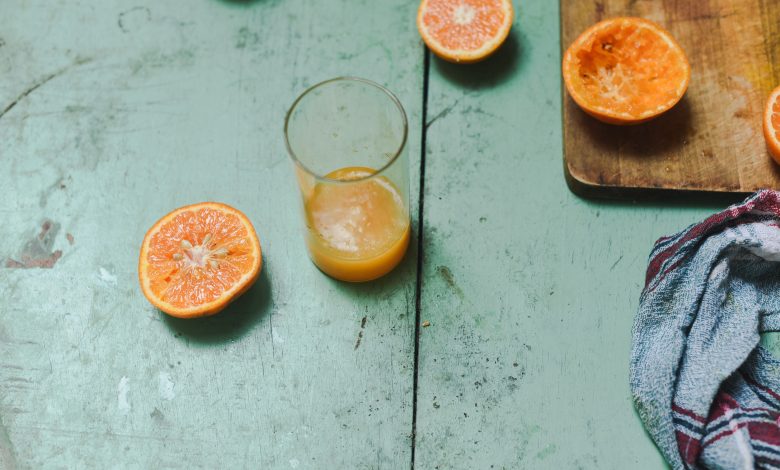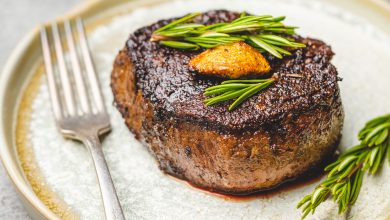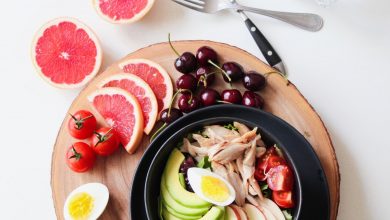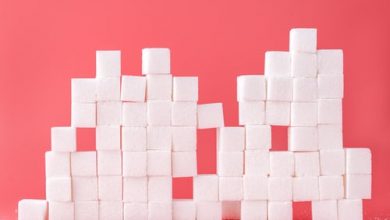
Is a Juice Cleanse a Healthy Way to Lose Weight?
We’ve all thought of taking drastic measures, especially after the holidays or a massive cheat day. We overindulge in food and end up regretting all the calories in the end.
Aside from punishing ourselves with longer gym time, others would take a riskier approach – juicing. The trend of juicing has become quite popular over the years. However, its efficiency as a weight-loss tool has gotten quite controversial.
Let’s learn more about juice cleansing, and if it can help you lose weight. How does it work? And what are the potential risks involved?
What is a Juice Cleanse?
Going on a juice cleanse is removing yourself from all forms of solid food and consuming only freshly pressed juice as part of your diet for several days. This “cleanse,” or diet, is said to be effective in detoxifying the body and losing weight.
Also, although this method of detoxing has been quite popular, there have been no scientific claims that show meal replacements will indeed detoxify the body. Before getting into the nitty-gritty details of the whole process, let’s try to differentiate juicing and blending. There’s a huge difference, so you can’t toss a bunch of fruits and vegetables in a blender and call it juice.
Differences Between Juicing and Blending
The first significant difference is the gadget you use. With blending, you will be using a blender or even a food processor that can crush everything into a watery consistency with the help of additional liquids. Juicing requires you to use a juicer or a juice extractor; it works by pressing the fruit or vegetable until the juice comes out.
When fruits or vegetables are being squeezed, their juices come out, and the pulp is excluded from the mixture, whereas blending mixes all the edible parts and includes the flesh, which consists of fiber from the plant.

How Nutritious is Fresh-Pressed Juice?
We know that whole fruits and vegetables are filled with all sorts of nutrients like vitamins, minerals, and antioxidants. Once they are in juice form, their nutritional value decreases, and the amount of sugar increases. Excess sugar can be hard for our bodies to metabolize and will just be converted to fat instead.
Pressed juices are entirely devoid of fiber, thus lacking fat and protein to balance the amount of sugar in the fruit or vegetable you decide to press. This will cause your blood sugar to shoot up and your energy level to crash. Crashing from a sugar rush can lead to overeating and more cravings.
To be honest, it’s better to have a fruit and vegetable smoothie rich with nutrients. Even a dense soup that contains a balanced amount of fiber, fats, carbs, and protein compared to juices with empty calories.
How Does a Juice Cleansing Work?
Advocates of this method have put together several recommendations on how a juice cleanse should be done to see optimal results. Here are some of the few.
- Consume only pressed juices and water for several days.
- Drink pressed juices with a combination of specific supplements.
- Mix pressed juices with colon cleansers, such as enemas.
- Drink pressed juices with a low-calorie meal to balance out macronutrients.
Most fans of this method choose a rather extreme approach and often do a cleanse with just the pressed juices for an extended period. Or they may opt to add enemas to quicken the process of weight loss. Both methods are quite dangerous, and you need to be careful with either option.
Claimed Benefits of Juice Cleansing
With whatever fad diet, exercise trend, or weight loss method you choose to try, the key is moderation. With juice cleansing, you need to keep in mind that this method should be done within a limited time; the ideal timeframe would be within three to the days. In this range, you see results and don’t overdo it.
There are several celebrity advocates to juicing, and they claim that juicing has dozens of benefits like:
- Introduces Extra Nutrients to the Body: With the number of fruits and vegetables you would need to fill up an entire glass, you are loading up on the nutrition and, in turn, improving overall health.
- Boosts Immunity & Energy: Juices are supposedly filled with antioxidants that boost your immunity and help you feel energetic.
- Detoxifies Your Body: Advocates of juicing claim that this diet process flushes out all the toxins in your body, which is why they highly recommend this method for people who want to detoxify their bodies.
- Improves Digestion: Freshly pressed juices contain an abundant amount of enzymes that can help enhance the entire digestive process. This helps your gut work more effectively in the long run.
Most of these claims have no supporting study or research to prove it’s validity, which is why it is essential to do your research before jumping on any bandwagon.

Risks of Going on a Juice Cleanse
Several nutritionists and doctors have identified various risks associated with juice cleansing. Which is precisely why this method does not work for everyone, here’s why:
1. May Cause or Worsen Kidney Damage
Drinking a large quantity of juice is dangerous for individuals already suffering from kidney disorders with the amount of acid a single pressed juice contains. Then, there are some juices containing oxalate, which is a major component of acid-based stones. These stones can form in your kidney, which can lead to kidney stones in an otherwise completely healthy kidney.
There have been case studies that demonstrate how the risk of kidney damage is increased due to juice cleansing. So much for detoxifying your body. In one case study, a patient experienced kidney failure after going on a juice fast for about six weeks.
As part of the fast, he kept a detailed list of all the juices he consumed. His physician later assessed his record, and it was discovered that he took in 1,260 milligrams of oxalate every single day during the fast. Oxalate, as we’ve mentioned, is an acid-based compound in plants. It is described as nephrotoxic, meaning that an excess of this compound can lead to nephrotic damage.
This is the exact reason why healthcare providers warn people about the repercussions of going on a full juice cleanse over a long period of time. Either they need to calculate the amount of oxalate they are taking in, or they have to go on a cleanse for a shorter time frame.
2. Inadequate Amount of Calories and Fiber
When you want to lose weight, you need to maintain a specific calorie deficit. This means you need to use up more calories than what you consume from food. Since going on a juice cleanse means you eliminate the consumption of solid food, you will be working with 600 to 1.000 calories a day.
Accompanied by exercise, you will notice the excess fat melt like butter in a hot room. The problem with this is you are training your body to depend on a smaller amount of calories. Once you go back to your regular calorie intake, the weight you lost just goes back, and your metabolism just gets slower, thus leaving you even more frustrated than you already were. It’s always best to work within the range of your normal caloric limit and just consume the calories with regular exercise. Juicing is not a long-term solution.
We know that whole fruits and vegetables are packed with fiber and are excellent sources of nutrients. With juicing, we are removing the essence of the fruit or vegetable and consuming empty calories. Fiber plays a vital role in a healthy diet; it aids in digestion by keeping the natural flora in your digestive tract healthy and reduces constipation. Fiber also reduces the risk of cardiovascular disease, obesity, and diabetes. With juicing, you are significantly decreasing your fiber intake, which will eventually result in serious health problems.
3. Risk of Bacterial and Other Infections
In the event you don’t have a juicer, the next best option would be to purchase freshly-pressed juice from your local juice bar. One problem with this is that we are not entirely sure how it is made. If you come across juices that are unpasteurized but have been stored for a while, the chances of you getting sick are quite high.
Without treating or preserving the juice, there could be a bacterial build-up. With dozens of harmful pathogens that can cause debilitating diseases, you need to take extra precautions on where you are sourcing your juices from. This is especially dangerous to children, the elderly, and those who are immunocompromised.
Now, you are already getting very little to no protein on a juice diet, which decreases the number of essential nutrients. Therefore, you are exposing yourself to risks. Some studies show that even a minute depletion in immunity-enhancing macronutrients like zinc and iron can gravely affect the overall health of an individual. This makes you more susceptible to catching illnesses, and it would even take you longer to heal from them.
4. Possible Dehydration and Electrolyte Imbalance
The only known beverage to directly cause dehydration is alcohol. We’ve all been there. After spending a long night of drinking, nothing sounds better than a tall cold glass of water. But did you know juicing has been noted to cause dehydration as well? Juicing has been seen to cause indirect dehydration, especially to those who have overused the method.
Otherwise, healthy individuals who have been juicing also suffer from diarrhea due to the lack of fiber. Persistent diarrhea can lead to both dehydration and electrolyte imbalance, which will ultimately land you in a hospital with an IV drip.
5. Nutrition Deficiencies
There have been several cases where individuals who go on an extended juice cleanse have been assessed to be malnourished or nutrient deficient. By removing all forms of solid food, you are also eliminating the primary sources of protein and other vitamins from your diet.
Aside from the lack of protein, going on a juice cleanse makes you deficient in calcium, vitamin D and B12, iron, zinc, and omega-3. All these nutrients play a part in your body’s daily function, and an inadequate amount may lead to a plethora of disorders like anemia, osteoporosis, and inflammation.
Juicing not only lowers the number of nutrients you take in, but it would eventually interfere with the process of absorption as well. Fat is required to absorb fat-soluble vitamins A, D, E, and K. Without fat, you are not processing the vitamins you are supposedly acquiring from your juice fast.
At this point, we already know how juicing poses a danger to your health than actually improving it.
6. Weakness and Fatigue
We know that our body depends on calories for energy. When you are on a juice cleanse, you are working with a limited amount of calories. Put it this way: if a car doesn’t have enough gas, it will not run. Same as with your body, if there are not enough calories to complete certain activities, you will get weak. Individuals on a juice fast often feel fatigued, which is why they shouldn’t be on a juice fast when they are expecting to do strenuous activities.
Weakness and fatigue arise because of the low amount of calories you are taking in. Depriving your body of calories is equivalent to limiting your energy source. And when we talk about weakness and fatigue, we are not just saying you will feel tired, but this can often lead to more severe conditions if not addressed.
7. Loss of Muscle Mass
There are lots of nutrients you need if you are looking to maintain or build muscle, which is why one of the significant downsides of going on a juicing cleanse is the loss of muscle mass. Remember, the goal of losing weight is to lose unwanted fat but not muscle.
With the minimal amount of protein, magnesium, and vitamins absorbed by your body, juice fasts significantly reduce the amount of lean muscle. When the lean muscle is reduced, your metabolism slows down as well. This means you are burning even fewer calories and will eventually have a harder time maintaining the weight you have lost.

Myths Involving Juicing
Like any other trend, false claims will circulate to encourage people to join in. There have been several claims associated with the benefits of juicing, but here are some that are very untrue but have influenced so many people to try this diet:
1. Juicing Keeps You Full
We know that juice diets limit or lack the amount of solid food intake. Thus, you will feel hungrier during the day. Several studies and research have shown that the consumption of only liquid meals is less filling compared to that of solid food.
In one particular study, 40 individuals with varying weights that ranged from average to obese were divided into three controls and each given 300 calories worth of apples, apple sauce, or apple juice with their meals. The subjects who took the apple juice were less full compared to those who had the whole food. They eventually got hungry after a while, compared to the other two controls.
Solid food is more filling because of the protein and fiber they contain. Fiber is known to suppress appetite and improves digestion. When you are juicing, you completely remove the fiber from the whole fruit and vegetable, which is why you will not feel satiated even after drinking a liter of pressed juice.
2. Juicing Improves Metabolism
Due to a severe calorie deficit, a juice cleanse could harm your body’s metabolism. As mentioned, this dieting method is characterized by rapid loss of weight, minimal fiber, and limited protein; your muscle mass will reduce significantly. Since our muscle is metabolically active, those with a lower muscle mass will have an even lower energy expenditure. This means that fewer calories are burned at rest, as opposed to those who have a higher muscle mass.
In addition to this, when your body senses that it is going through starvation, it will adjust its calorie intake. With juicing, you are essentially starving yourself, giving your body the signal to consume stored calories.
In one particular study, a group of overweight and obese women was put on an extremely low-calorie diet for a period of three months. This calorie restriction treatment showed that, even if the subjects did lose weight during the time of the study, they also experienced a significant reduction in resting energy expenditure.
Another study showed that test subjects that went through the same form of treatment had experienced a drastic decrease in resting energy expenditure in just four days of the trial. The group with an extremely low caloric limit experienced almost double the drop in resting energy expenditure compared to the rest of the test subjects.
While the process of weight loss must go through a calorie deficit, doing a crash diet and juice fasts are counterproductive. Otherwise, you are better off with a well-balanced meal and regular exercise.
Does A Juice Cleanse Help With Losing Weight?
The short answer to that is obviously yes. Juicing does help you lose weight, based on the evidence that we have gathered. But the fact of the matter is, this form of diet is not something we can thoroughly recommend.
Going on a juice cleanse may have its benefits when done for a short time. However, if prolonged, it can cause mild to severe health problems due to the calorie restriction and the overall lack of nutrients that are being absorbed by your body.
Another thing you must consider is the fact that going on an extremely low-calorie diet slows down your metabolism. Eventually, it causes you to gain even more weight after the phase and ultimately makes it harder for you to lose it the next time around. Juicing may be a faster way to lose weight. However, based on empirical evidence, the health risks of this method certainly outweigh the benefits it supposedly provides.



